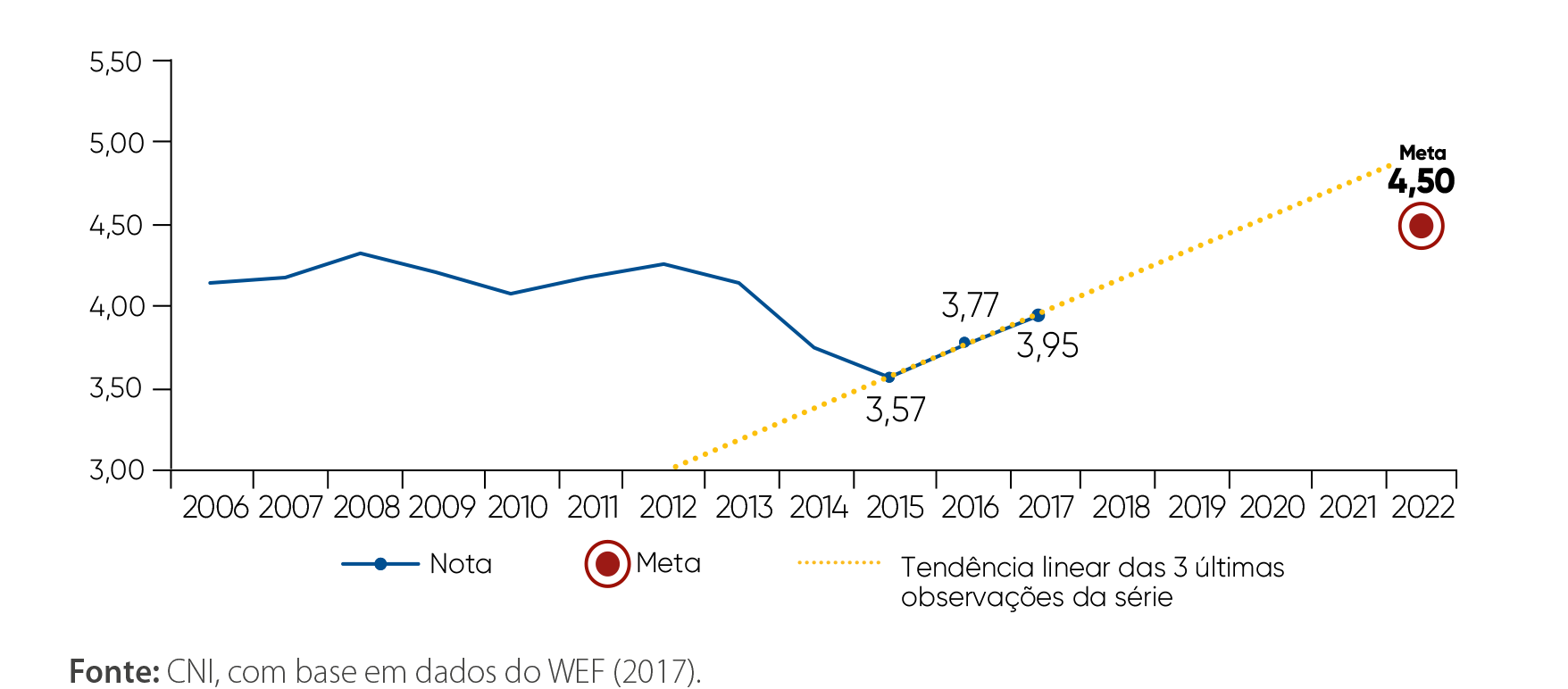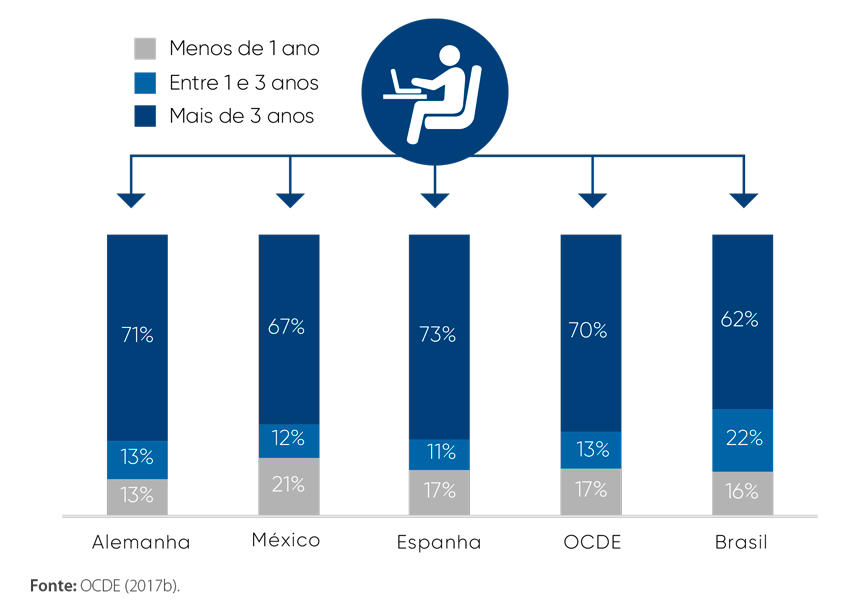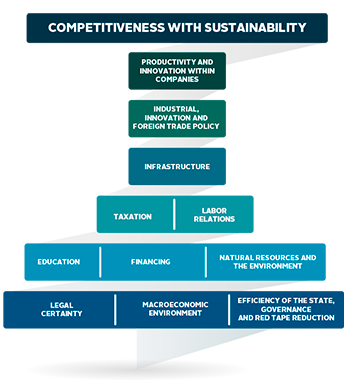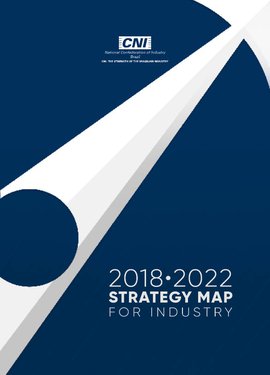Labor Relations
Why Labor Relations?
The rules governing the relations between workers and employers play a key role in ensuring a functional labor market. They must be clear and easy to understand, so that companies and workers can be certain about their rights and duties in their labor relations. In addition, these rules must be modern, flexible and negotiable between companies and employees.
Rules that meet these criteria reduce disputes and increase the legal certainty of companies and workers in their labor relations. Less conflicting labor relations lead to increased productivity and production efficiency, with gains for the Brazilian economy.
Recently, the regulation of outsourcing and Law 13,467/2017 (labor reform) modernized the labor law with the aim of adapting it to new ways of working and facilitating the development of companies and job creation.
Enforcing this law is the challenge to be faced right now, but continuing to make progress in modernizing labor relations in Brazil is fundamental.
Reducing the tax burden on labor is also essential. This will boost the competitiveness of Brazilian industry, promoting job creation and increasing workers' income.
VISION FOR 2022
Labor relations are in line with the needs of society and of the economy and adapted to the demands created by new technologies, by changes in the population profile and by the need for mobility and flexibility.
There is greater recognition of arrangements negotiated between employees and employers, with positive impacts on investments in human capital and increased productivity.
How are we doing?
Because of difficulties caused by red tape, Brazil was ranked 114th among 138 countries in the Labor Relations pillar of the Global Competitiveness Report 2017-2018.
RANKING OF THE LABOR RELATIONS PILLAR

Note: Mean scores (0 = worst performance; 7 = best performance)
Where do we want to get to?
Main goal: Modernizing labor relations
Macro objective: Improving Brazil's score on relations between employees and employers from 3.95 to 4.50
BRAZIL'S SCORE IN THE EVALUATION OF EMPLOYEE-EMPLOYER RELATIONS

Description: Average score weighted by the frequency of answers to the question "How would you characterize your country in relation to employee-employer relations?"; (1 = usually conflicting; 7 = usually cooperative).
PRIORITY TOPICS
MODERNIZATION OF LABOR RELATIONS
Ensuring the effectiveness and continuity of measures designed to modernize labor relations is essential for creating a more favorable environment for productive investment and job creation
In 2017, the passage of laws 13,429/2017 (outsourcing) and 13,467/2017 (labor reform) modernized key provisions of labor laws, adjusting them to more modern production models and lending more flexibility to labor relations, as companies and workers wanted.
It is now necessary to ensure the effectiveness of the laws that were passed. Action must be taken to inform society about the importance of the new laws and devise the best ways possible to enforce them.
Brazil must also remain on the path toward modern labor relations. The law is still marked by gaps that leave room for different interpretations and generate legal uncertainty and the excessive red tape that still prevails in Brazil needs to be eliminated to reduce costs and improve the efficiency of companies and of the state.
Brazil is one of the countries with the highest number of labor lawsuits. Excessive judicialization is aggravated by a sluggish and expensive system that generates costs and uncertainties.
It is hoped that the amendments made to the labor law will strengthen collective bargaining and, through dialogue, adjust working conditions between companies and workers in ways that are positive for both of them. It is also important to move forward in promoting other alternatives for settling disputes and reducing judicialization.
A competitive and global industry requires up-to-date, non-bureaucratic, flexible and more freely negotiated labor relations between workers and employers.
RANKING OF THE IMPACT OF LABOR MARKET REGULATION ON BUSINESS

Objectives
Ensuring the effectiveness and continuity of measures to modernize labor regulations
 GOAL
GOAL
Improving Brazil's score on hiring and dismissal practices from 1.92 to 3.70
![]() INICIATIVES
INICIATIVES
- Improving labor relations
- Implementing alternative mechanisms to settle disputes
Stimulating negotiations between workers and employers
 GOAL
GOAL
Increasing the percentage of industrial establishments that enter into collective agreements from 5.29% to 6.00%
![]() INICIATIVES
INICIATIVES
- Training entrepreneurial leaders in collective bargaining
- Promoting negotiations and a positive work environment
LABOR COST
Excessive labor charges increase costs for companies and reduce their competitiveness and incentives to make new investments and hire workers
However, the costs for companies are well above the wages actually earned by their workers. This is because labor law provides for a large number of cash and non-cash social and labor charges.
The Brazilian labor system increases labor costs and has negative effects on the competitiveness of companies, reducing job creation in Brazil. In addition, workers do not receive benefits commensurate with the labor charges borne by their employers.
RANKING OF THE PERCENTAGE OF SPENDING ON SOCIAL SECURITY AND OTHER LABOR-RELATED TAXES IN TOTAL COMPENSATION COSTS (2015)
Brazil and selected countries

Objective
Reducing indirect labor costs
 GOAL
GOAL
Reducing the unit labor cost for Brazilian industry from 103 to 90
![]() INICIATIVES
INICIATIVES
- Reducing the costs for complying with ancillary obligations
- Expanding differentiated treatment for micro and small enterprises
- Implementing remuneration policies that ensure a balance between the evolution of costs and labor productivity
SOCIAL PROTECTION MECHANISMS
Regulations on labor social protection in Brazil need to be reviewed with the aim of avoiding adverse effects on worker productivity
Technological innovation and worker qualification levels are important factors for labor productivity. Workers are not qualified through formal education alone, but also through the professional experience they acquire by learning at work.
In Brazil, certain social protection mechanisms have been generating incentives for worker turnover, that is, for labor relations not to be lasting. The time a worker remains in a job in Brazil is shorter than in Germany, Spain and in OECD countries on average.
The short length of time workers remain in a job prevents a significant percentage of workers from gaining sufficient experience at work and, as a result, their productivity is lower than that of workers who stay longer in a job. In addition, the prospect that workers will not stay in their jobs for long reduces the incentives for workers and companies to invest in training.
Social protection mechanisms are important for ensuring the quality of life of workers and their economic-financial security. However, they should not generate excessive costs or encourage behaviors that are not conducive to increased worker productivity.
LENGTH OF TIME WORKERS STAY IN A JOB (2015)

Objective
Improving social protection mechanisms to reduce negative impacts on productivity
 GOAL
GOAL
Improving Brazil's score on incentives provided for in the unemployment law for people to look for a job from 3.40 to 5.10
![]() INICIATIVES
INICIATIVES
- Continued improvement of Regulatory Standard (NR) 12
- Improving quota systems for disabled people and young apprentices
- Improving social and labor benefits
KEY FACTORS
Click on each key factor below to learn more about the Map






